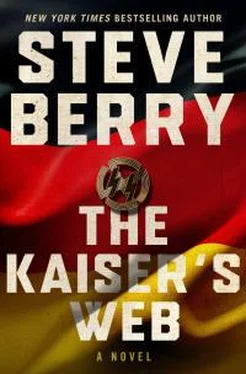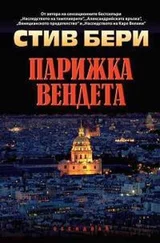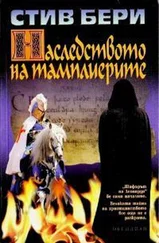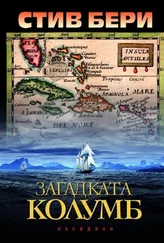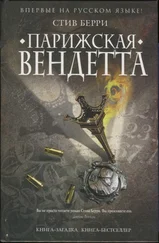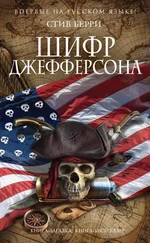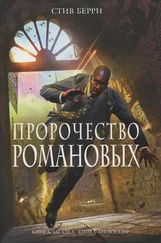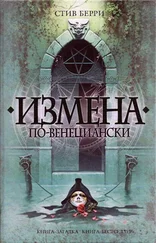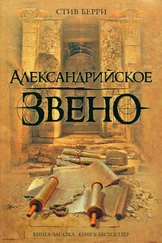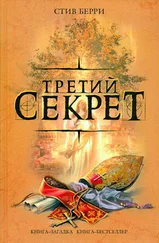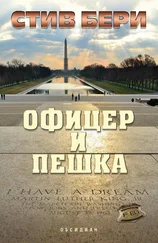“I have been sent to make sure what you and I know does not have the ability to manifest itself.”
“I have known this for many years and have kept the information to myself. There is no reason to doubt I would not continue.”
On that conclusion he was still debating.
Ada had to have learned whatever she knew from somewhere.
Was it from this man?
He realized, though, that killing Jan Bruin could prove risky. Pohl had provided some of the personal history. Bruin was being modest. He was actually a politician of some note. Not a celebrity in the sense that his actions were subject to great scrutiny, but well known nonetheless. A violent death could attract a lot of attention. Perhaps Bruin was right. Let it lie. But that was not his decision to make. He needed to consult with Pohl and let his benefactor decide the next course. So he finished the wine and tabled the glass. “You are correct. Let us leave things as they are. I will report what you’ve said.” He stood from the sofa. “I appreciate your time. And I thank you for your discretion.”
Bruin rose and led him back to the front door and onto the covered stoep. The rottweiler still slept against the railing.
“Are you staying the night in Nohana?” Bruin asked.
“I thought I might. Then leave tomorrow.”
He noticed words etched into the pediment above the main door.
RUST-EN-VREUGD.
Bruin caught his interest. “Rest and gladness. It was the wish my father had for all who entered.”
“Appropriate, I’m sure.”
“I have always thought so. They seem particularly applicable at this moment.”
He caught the message.
Evening was descending, the air steadily releasing its heat with the sun’s westward retreat. He took a moment and admired the distant mountains and emerald veld.
Impressive.
He said his goodbyes and headed for his car. As he reached the stoep’s steps, the rottweiler wrested itself from sleep and stood.
Bruin came close and stroked the animal. “Herr Engle, tell the Kaiser that I am no threat, but I can be quite formidable if roused.”
Maybe he was right.
Like the rottweiler Jan Bruin continued to pet, sleeping dogs, especially those aggressive and unpredictable, were best left alone.
CHAPTER FIFTY-ONE
Cotton left Nohana and drove back north to Allesverloren. He watched the road carefully for Engle’s vehicle, but it did not appear. He found Cassiopeia where he left her, in the heavy brush just off the highway.
He checked his watch: 7:20 P.M.
The sun was vanishing, the shadows lengthening.
“Engle left about ten minutes ago. He went north, toward the border,” Cassiopeia said as she climbed into the Range Rover. “Learn anything?”
He told her what the man at the museum had related.
“I assume it’s our turn to visit Jan Bruin?” she said when he finished.
He angled the car toward the estate’s entrance. “Yep.”
He drove about half a mile down the dirt lane before parking in front of what could only be described as a mellow old home adorned with splendid stone and woodwork. Red-brick walls were at places thick with vines, the paned windows numerous, a lack of symmetry clear proof of decades of determined remodeling. A copper turret at one corner, green from age, was topped with an ornate weather vane. Three stone chimneys reached for the evening sky. The intense whirring and snapping of insect wings from all around brought to mind the crackle of wood in a fire.
A heavyset man dressed in jeans and a long-sleeved shirt stepped from the covered stoep. His sparse hair, which seemed bleached by the sun, was the color of hay. The width of his shoulders and breadth of his chest suggested he was accustomed to hard work. He introduced himself as Jan Bruin. Cotton quickly explained why he and Cassiopeia had come, deciding the direct approach would be best.
“I assume you received a call from the man at The Boer’s House,” he said to Bruin in English. “He was dialing the phone as soon as I left.”
“I did. He wanted me to know of your inquiries.”
“We need some answers. Do you mind talking?”
“Why don’t we sit on the stoep. It’s lovely out here this time of day.”
They followed him up a short flight of stairs, and each of them took a seat in a high-backed rocker made of what Cotton believed was stinkwood. An odd description he’d always thought considering the wood possessed no odor. Off to the west the blood-red globe of the sun purpled the distant ridges.
“There’s a woman,” he said, “her name is Ada. She lives in the Chilean lake district. Is that a name you are familiar with?”
Bruin seemed to consider the inquiry a moment before saying, “I have never been to Chile.”
“That doesn’t answer my question.”
“The answer is no. That name is totally unfamiliar to me.”
“She sent us here,” Cassiopeia said. “Or should I say, she sent us to Africa and the trail led here.”
“Trail to what?”
Cotton wasn’t going to offer too much. Instead he decided to see how truthful their host was going to be. “We believe that a man named Josef Engle will come to see you. Has that happened?”
Bruin shook his head. “No one by that name has visited.”
“He could have used an alias,” Cassiopeia said, and she described Engle as he appeared not an hour ago, then asked, “Has a man fitting that description been here?”
Bruin slapped away the inquiry with the back of his hand. “Same answer. No one like that has come. In fact, I have had no visitors in several days.”
He watched Bruin’s urbane mask of self-control as he lied. Cassiopeia kept her face rigid as well, and neither of them revealed anything.
“He may stop by,” Cotton finally said. “We have reason to believe that he’s here in Nohana.”
“What am I to do if he appears?”
“We’d like you to find out what he wants,” Cassiopeia said. “Then we’d like you to tell us.”
“What is all this about?”
“The man at The Boer’s House said your father’s name was Thomas Bruin and that he was a German immigrant. Was Thomas his birth name?”
“Now, Mr. Malone, that question could be construed as intrusive.”
The voice sounded mildly irritated.
“I can be that way sometimes. Occupational hazard. But could you answer the question?” He wasn’t going to back off.
Bruin considered the rebuke with clear amusement. “My father was born Thomas Bruin in Stuttgart. He immigrated to South Africa after the war. So did a number of others, none of whom were Nazis or war criminals, just men and women who wanted a better life somewhere else. Germany was, after all, in shambles.”
“Does the name Gerhard Schüb mean anything to you?” he asked.
The question hung in the air a moment as Bruin hesitated with his response. “The name has no meaning. Is he another immigrant?”
“We’re not sure,” he said. “We were hoping you would help us out and we could learn more.”
“It appears that you both know precious little.”
“Exactly why we traveled all this way,” he said. “To learn.”
A soft whir passed overhead, followed by the slow flap of wings. An owl returning to its perch in a nearby tree. More insect wings quivered in air that was chilling by the minute. A flock of rosebushes hugged the house’s foundation, just beyond the railing, and the creamy-yellow blooms trembled in a burst of wind. On the horizon, far off on the veld, a cloud of dust rose.
“Wildebeest,” Bruin said. “Heading for water. Huge as a Buddha and powerful. I so enjoyed shooting them.”
“Why don’t you anymore?” Cassiopeia asked.
“There’s no sport to it.”
He wondered about the comment. Strange coming from a man born and raised in a place where wild game abounded. Bruin continued to rock in his chair, staring off into the distance. A few moments passed before Bruin said, “Is there anything more?”
Читать дальше
